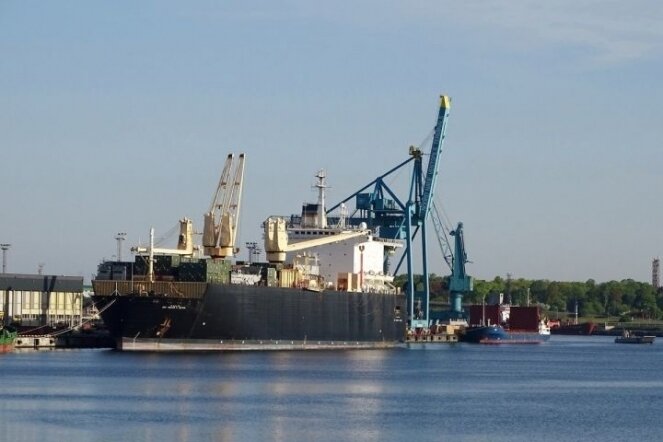Expert discussion: a unified transit corridor offer is desperately needed
Participants of this discussion agreed on Monday, 29 May, to submit proposals developed during the event to the prime minister and transport minister. BATL President Inga Antane described the current situation of the transit industry, reminding that this industry brings a billion euros to the country’s economy every year and provides jobs to more than 80,000 people. Adding that the eastern coast of the Baltic Sea has the highest port competition in the world, with 12 ports competing with one another in a small territory, Antane emphasized that the total volume of cargoes remains stable with a slight growth tendency. Meanwhile Latvia’s ports suffer cargo loss every year. Describing the situation, she reminded that Russia has made a decision to divert its energy resources and other cargoes to its own ports, which have been experiencing rapid growth these past years. Because of that, Latvia’s ports are expected to have a cargo volume decline this year. Antane notes that the tax reform, which is expected to increase excise tax for diesel fuel, will impact the industry’s competitiveness even more. «The government has said a strict no to Nord Stream 2, which would have brought the national economy around EUR 25 million. In addition, the government has not come up with a viable unified transit corridor offer,» said Antane. Baiba Apine, manager of Price Waterhouse Coopers consultancy department, says the future of cargoes received from Russia, Belarus, Kazakhstan and China is not as bright as it is hoped to be. She reminds that even a small amount of cargo transit from those countries would be a great benefit to Latvia. BATL representatives say SEB Bank’s economist Dainis Gaspuitis has said that demand for Russian coal and gas in Europe is set to decline, as liquefied natural gas from America continues to replace more conventional energy resources. Cargo flow from China alone will not compensate the cargoes lost to Latvia with the closure of the oil pipeline. According to him, Latvia has missed its opportunity to develop alternative cargo flow for transits. With that, it will be hard to recover lost cargoes. Uldis Rutkaste, head of the monetary policy office of the Bank of Latvia, described Latvia’s tax reform offer as beneficial for the national economy. Excise tax increase for fuel could negatively affect transport sector companies. However, labour tax reduction will work in the opposite direction, relieving company costs. Janis Haze, board member of Ventspils Commercial Port, reminds that, when compared with Russia’s north-west ports, Latvia’s transit corridor is significantly more expensive. Nevertheless, Latvia continues servicing Russian cargoes. Raising railway tariffs in such a situation would be absurd, as it would make Latvia’s transit corridor completely uncompetitive. BNN
30-05-2017
Comments
|
Entertaiment & Arts
Baryshnikov to be given Latvian citizenship for contribution to Latvia’s cultureOn Thursday, 27 April, Latvia’s Saeima supported the legislative draft regarding the provision of Latvian citizenship to world-famous artist Mikhail Baryshnikov for his contribution to Latvia’s culture, as BNN was informed by Saeima’s press-service. |

Daily magazine about Latvia latviannews.lv
Anton Chekhov
 pribaltika.com
pribaltika.com
Russian version

